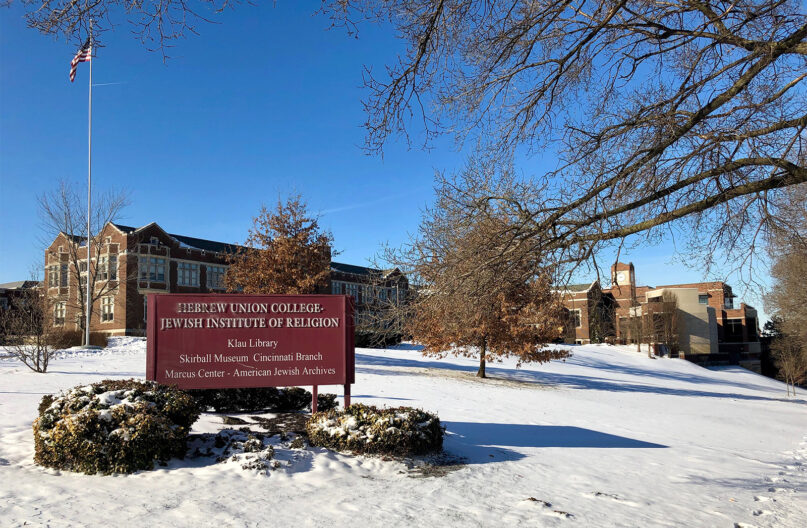(RNS) — The nation’s oldest Jewish seminary will end rabbinic training at its flagship campus in Cincinnati by 2026, the governing board of the Reform movement’s Hebrew Union College-Jewish Institute of Religion voted on Monday (April 11).
The college, founded in 1875 by Rabbi Isaac Mayer Wise, a pioneer of Reform Judaism in the U.S., has seen declining enrollment as students opted for the schools two other campuses, in New York and Los Angeles.
The vote to close the Cincinnati campus was bitterly resisted by faculty, students and alumni. A letter from hundreds of alumni of Hebrew Union College urged the governing board to reject the restructuring recommendations.
In the end, the restructuring plan was approved by more than a two-thirds majority.
This year the Cincinnati campus had only 27 rabbinical students, a steady decline from 51 students in the 2008-09 school year. By contrast, Hebrew Union College’s Los Angeles campus has 40 students; the New York campus has 45.
The historic Cincinnati campus has seven buildings; two are no longer used by the college. But the five that remain include treasured institutions, such as the Klau Library, American Jewish Archives and the Skirball Museum. The campus will remain a research center and continue offering some graduate-level courses.
“We recognize the pain that this decision causes and expect to take the appropriate time and care to implement this decision in a sensitive and constructive manner, in collaboration with our community,” President Andrew Rehfeld said in a statement.
The board also announced it would design a hybrid rabbinical and cantorial program that would allow students to take courses online without having to relocate to New York or Los Angeles. It would still require some annual in-person intensives.
The recommendation to shutter the rabbinic degree program was spurred by both declining enrollment and financial strain. The college is facing a record $8.8 million deficit.
“Given declining enrollment and future demographic projections, it is no longer practical or prudent to continue delivering rabbinic education as we do now, with three full residential programs,” the recommendation to the Hebrew Union College board read.
Many alumni argued there was no clear financial savings plan outlined in the recommendations.
“If I believed and felt strongly that the closing of the rabbinical program was part of a larger vision that was clearly outlined with a plan for funding and implementation, I would be sad, but wouldn’t have opposed it,” said Joseph Black, senior rabbi of Temple Emanuel in Denver and a graduate of the Cincinnati campus. “I feel they were premature in shutting down Cincinnati without a clear understanding of how our other assets would be leveraged.”
Black said he felt that the board’s decision was emblematic of the difficulty the Reform movement was having in meeting the needs of Jews in the middle of the country.
Most U.S. Jews live on the coasts. By one estimate more than 60% of American Jews live in New York state, California, Florida, New Jersey, Massachusetts and Pennsylvania.
Rabbi Rick Jacobs, president of the Union for Reform Judaism, the congregational arm of the movement, said being able to adapt to changing circumstances is a Reform hallmark.
“We are not a movement frozen in time,” he said in a statement. “Rather Reform Judaism evolves to meet the needs and challenges of our times.”
RELATED: As Jewish movements struggle, independent rabbinical schools gain a toehold





